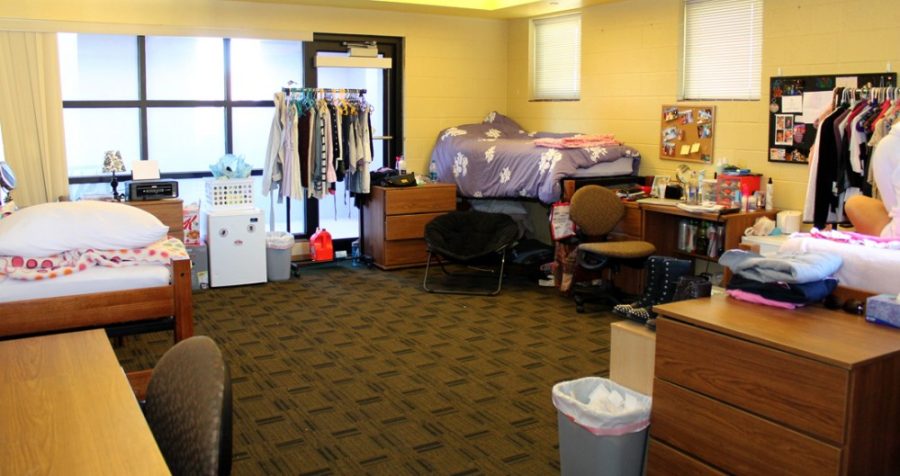With this year’s incoming class of over 7,800 new students, marking the largest in UA history, it was expected that there would be a larger number of freshmen applying for on-campus housing.
By mid-June, the residence halls were already full, making Residence Life unable to accommodate all the students who wanted to live on campus.
Dana Robbins-Murray, assistant director of marketing for Residence Life, dismissed claims of overbooking of students in residence halls causing them to live in resident assistant rooms and study halls.
“We’re not really overbooked,” Robbins-Murray said. Every year, Residence Life tries to accommodate as many freshmen as they can who have the desire to live on campus. To make this possible, they have an extended housing program. This program opens up about 300 extended spaces of temporary housing.
Although there was an incentive program for returner students to live off-campus and the former Phi Gamma Delta fraternity was converted into a residence hall — adding 64 new bed spaces — the extended housing program was still needed due to the large number of incoming freshmen.
“We convert some study halls into rooms; they’re set up that they can be rooms,” Robbins-Murray said. “We have some apartments that we convert into student housing for the short period of time. We do put some students in with the [resident assistants], and then we have some rooms we don’t typically use that will open up for the time period.”
The RAs’ contracts state that there is a possibility they will have to temporarily share their bedrooms. Those RAs who are placed in this situation are compensated for it.
As soon as permanent spaces open up, these students who are placed in temporary housing are moved. These permanent spaces open up from students who don’t show up to move-in day and students who decide that living in the dorms is not for them, according to Robbins-Murray. The first students who are moved will be those currently living with RAs. Robbins-Murray added that some will be pulled out this week.
As of now, there is no known number of exactly how many students are currently in temporary housing or how many RAs are sharing their rooms, but an anonymous source said that, in Coconino, five out of six RAs share a room with residents.
There was a rumor that there were some security issues that arose from having RAs live with residents because they might have confidential information in their room. Murray dismissed this rumor and said that RAs should not have sensitive information, and all confidential information stays in the community director’s office.
“So far I have not incurred any problems,” one RA said. “However, it does make it difficult to have a private space for residents to come talk.”
Follow Jocelyn Valencia @_JocelynV_









